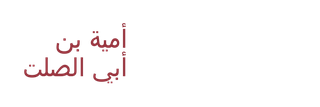Self-Reflection in the Transmission of the Rival’s Message
Reading Umayyah b. Abi Salt’s Poems

The project focuses on reading Umayyah’s poems and its treatment by early Muslim authors in the formative period of Islam. In this period, the time of reclaiming of the Umayyah’s poems by Muslim authors coincided with that of the canonization of Qur’anic readings, the writing of ‘sacred’ sirah/the biography of the Prophet Muhammad, the collection of hadith/prophetic tradition and tarikh/historiography materials. My hypothesis is that the transmission of Umayyah’s poems by early Muslim authors, during the formative period of Islam, reflects the way in which these authors guarded Muhammad’s Prophethood, defended the superiority of the Qur’an, and shaped the identity of early Islam. Keeping the hypothesis in mind, I also raise the question whether the reconstruction of the figure of Umayyah and the presentation of his poems by early Muslim authors serve as a self reflection of these authors. Furthermore, I would attempt to compare the content, style, and structure of the Ummayyah’s Poem and Qur’an. Simultaneously, the work would also takes into account the position of Ummayyah as a proponent of hanif and examine his position either as one of the precursors of Muhammad or as an opponent figure to the Prophet Muhammad himself. Considering the importance of unparalleled authority of Quran and the existence of of i’jaz doctrine, how did early authors managed to present the superiority of the Qur’an. My source for this research will be the multi-layered poems of the Umayyah, and the other literature by early Muslim authors. Umayyah’s poems contain repetitive accounts of his own genealogy, God, previous people and prophets, angles, paradise, hell, hereafter (basic eschatology), natural phenomena, basic ethic, destiny of man, and Arab habits and traditions. These themes are similar to the core content of the Qur’an and the basic teachings of Islam. The question then is to examine the originality of these themes in either of these literatures and the appropriation between these two sets of literature. Previous researches have facilitated the detection of the early and later layers of Ummayah’s poems primarily on the basis of the vocabulary, structure and style. By using this methodology, I will attempt to detect the early layer of the Ummayah’s poem and then subsequently analyze them to assess the way in which his poem were reformulated by the early Muslim authors to claim the truth of the Prophethood for Muhammad. My research on Umayyah will contribute to the Field Research (FR) 1 in the IKGF project, and perhaps also FR 2. It deals with early reconstruction of Islamic identity by Muslim authors, the concept of revelation (secrecy), and the transmission of rival’s messages (FR2). Broadly speaking, my research will contribute to the dynamic history of early Islam as presented by early Muslim authors.

